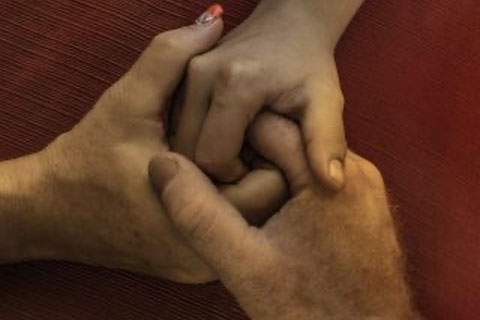Editor’s note: “I Should Watch TV” is a weekly column, inspired by David Byrne and St. Vincent’s song of the same name, that focuses on mental health awareness, representation, and understanding the world through the media we consume.
Last week I discussed accepting the pain of heartbreak in order to properly move on from a breakup. In doing so, I found myself continually asking the question, “What truly is love?” This, combined with my annual viewing of Paul Thomas Anderson’s masterpiece “Phantom Thread,” led me further down the rabbit hole known as comprehending love.
Plato once wrote, “Love is a madness,” which is not entirely uplifting, but something I find totally understandable. Like a disease, love can overwhelm the mind, soul, and body to the point of total exhaustion. In fact, you can become severely injured due to love-adjacent activities and actually die from a broken heart.
Not to hate on Plato, but I envision love in a broad sense that accounts for its multi-layered and wonderfully complex nature. This forces the realization that in order to understand love, one cannot simply read a brochure or take a class. The experience is different for everyone.
In an attempt to deepen my knowledge on the subject, I contacted Nicole McNichols, an associate teaching professor of human sexuality and social psychology at the UW.
“In terms of the arc of love, it usually isn’t that predictable … there usually are highs and lows, and [with] people, it’s dynamic,” McNichols said.
McNichols pointed to Sternberg’s Triangular Theory of Love, which places intimacy, passion, and commitment on three corners of a triangle. The combination of the three ideally leads to true love, but McNichols was quick to point out its rigidity.
“Sternberg considered sort of the combination of all those three ingredients as being the perfect type of love, but that’s a little bit judgy,” McNichols said. “What we find is that it really just depends on where you are in life and what you’re looking for.”
In recent years, I have noticed a profound push for romantic comedies. While research suggests that they are not doing so well at the box office, a simple scroll through Netflix’s library will tell you that the genre is alive and thriving. I am not entirely against rom-coms, but I think they set a dangerous precedent of unrealistic expectations for love.
Since sexual education in schools is not federally mandated, movies and television shows are often the next best teaching materials most of us have. What we don’t realize is that these forms of media are fundamentally warping our minds at a young age to believe utter nonsense.
“Film and media can sometimes portray important aspects of love in realistic terms, but they’re usually presenting an overly positive … fantastical image of something that is far more complicated and messy and hard to interpret than what’s presented in the movie,” McNichols said.
https://www.dailyuw.com/arts_and_leisure/columns/article_a78f5048-61d7-11eb-8471-fffdcbb1e665.html











































